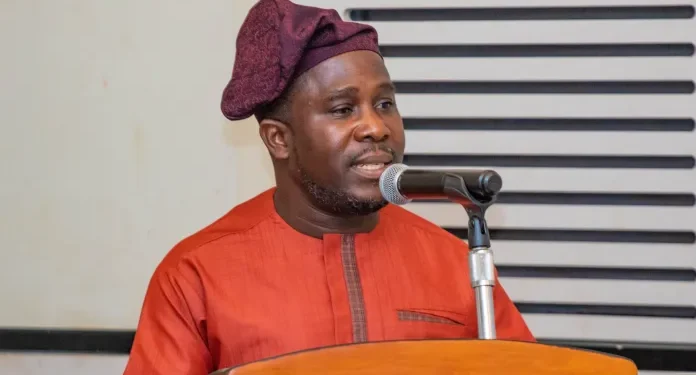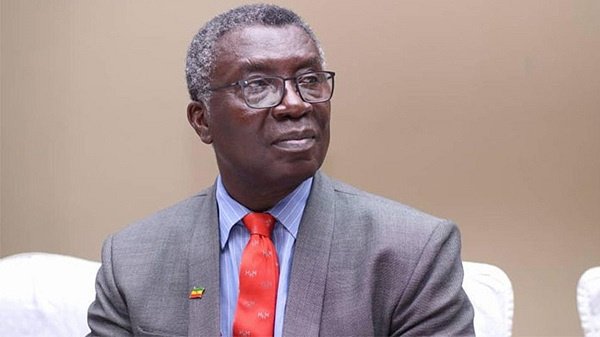The creative arts industry, encompassing fields such as visual arts, music, theater, and literature, is a vibrant sector that reflects cultural diversity and innovation.
However, this industry faces significant challenges, primarily due to unprofessional practices that undermine its potential for growth and sustainability.
From inadequate copyright protections to exploitative labor practices and a lack of professional development opportunities, these issues threaten the very fabric of creative expression.
Popular entertainment journalist and artiste manager Edem Mensah Tsotorme has called for heightened professionalism across Ghana’s entertainment industry.
According to him, both organizers and artists must strictly honor contractual obligations to help sustain the creative arts sector in the country.
His comments follow an incident where musician Black Sherif was pelted with water bottles after showing up 10 hours late for an event in Takoradi.
Tsotorme highlighted that while unforeseen circumstances, such as power outages or technical glitches, are sometimes unavoidable, many issues stem from sheer lack of preparation and unprofessionalism.
“If that happens, clearly there is some level of unprofessionalism on the part of the organizers. And there are some instances where artists will also be unprofessional. You give them a certain time for sound check, you give them a certain time to go on stage, and they end up not being there at that time.”
Edem Tsotorme
Professionalism in the creative arts is crucial for several reasons. First, it establishes standards that ensure quality and integrity in artistic output.
When artists adhere to professional practices, they not only enhance their credibility but also foster trust among audiences, collaborators, and stakeholders.

Professionalism promotes fair compensation and labor practices, which are essential for the sustainability of the industry. Many artists struggle to make a living due to a lack of standard pay rates and exploitative contracts.
Using the recent TGMAs as a case study, he explained that artists sign contracts with precise performance slots.
“Failure to adhere to agreed times for sound checks, stage appearances, or even red-carpet interviews could constitute a breach of contract. This year, for instance, when we got to the red carpet, there were a couple of people who wanted to interview Empress Gifty.
“But because I was the one who signed the contract and I knew what was in the contract, I pleaded with them that we could not do interviews because we had a specific time to go on stage. Any delay at the red carpet would have affected the performance time, and that would have been unprofessional on our part; it would have been a breach of contract.”
Edem Tsotorme
Unprofessional practices manifest in various forms within the creative arts industry, leading to detrimental effects on both artists and the sector as a whole.
One significant issue is the prevalence of unpaid internships and low-paying gigs, which disproportionately affect emerging artists. These practices not only devalue artistic work but also create barriers to entry for those who cannot afford to work for free.
Role of Education, Professionalism in Creative Arts Industry

To combat these unprofessional practices, the creative arts industry must invest in education and professional development.
Arts education programs should not only focus on honing artistic skills but also include training in business practices, contract negotiation, and copyright law.
Tsotorme also warned that such unprofessional conduct, whether by organizers or artists, could damage reputations and discourage future collaborations.
“We need to show respect to each other. Agreement should be agreement because, you know what, when we are punctual and loyal to the agreement, what we are doing is keeping ourselves in business. The artist is keeping the promoter in business, and the promoter is keeping the artist in business. That should be the mindset.”
Edem Tsotorme
Beyond education, the creative arts industry must embrace ethical practices and supportive policies. Organizations and institutions should implement fair pay structures and transparent hiring processes to ensure that artists are compensated fairly for their work.
Furthermore, industry-wide initiatives, such as collective bargaining agreements and copyright reforms, help protect artists’ rights and promote equitable treatment.
The creative arts industry is at a crossroads, facing significant challenges due to unprofessional practices that threaten its vitality and sustainability.
However, by prioritizing professionalism through education, ethical practices, and supportive policies, it fosters an environment where artists thrive and creativity flourishes.
It is imperative for stakeholders—artists, organizations, and policymakers—to collaborate in this endeavor, ensuring that the creative arts industry not only survives but thrives in the years to come.
As professionalism is advocated for, it not only uplifts individual artists but also enriches the cultural landscape, paving the way for a more vibrant and diverse creative future.
READ ALSO: President Mahama Urged to Watch Appointee Performance Closely






















